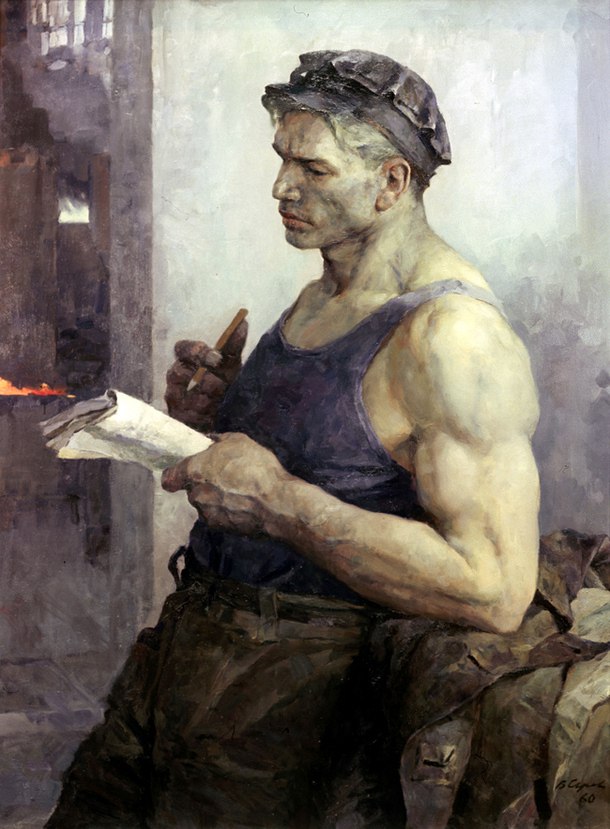Hello!
Apologies if this has been asked before, I did try searching but wasn’t really sure how to phrase it and didn’t find anything.
I’m reading Lenin’s “The State & Revolution”, but something confuses me when he talks about the proletarian state withering away. He says it would begin practically immediately, after all the state exists to suppress the opposite class, and after the revolution there would be no opposite class to suppress, and so the state would have no other option but to wither.
However, that’s only true within one country. Now more than ever all countries are inter-connected, and as we’ve seen in practically every socialist revolution, the likes of the US government will ensure it is not an easy transition. That means that even after revolution, a country is going to require a state in order to defend against outside attacks, is it not? Or am I misunderstanding what is meant by state?
Does that mean the withering away of the state cannot begin until all the world is communist? Is this already a theory? It sounds like something I’ve seen people discuss, but I don’t know the word for it.
Thank you!
I’m not commenting on this specifically but in general: Just as a PSA, we leftists don’t think our intellectual leaders are gods, nor their writings as gospel. Read Marx, Engels, Lenin, etc. but understand that they’re only human and did not have a crystal ball.
They got so many things right but there are some wrong things…
So when the proletariat takes over a state, it begins to use it, as you observed, as a weapon to suppress the bourgeoisie. However capitalism is global, like you say, and the real problem is that the class war transcends national boundaries. How this is resolved has been the subject of debate among Marxists: Karl seemed to believe that the revolution would be global once it began and would happen in one large movement. Conditions on the ground have never actually gotten to that point, however, and some Soviet and Chinese theorists have argued that it’s possible to sustain socialism within one country without achieving a global revolution.
Regardless, as far as I can tell, it’s not really possible to transition to a stateless, classless society until the revolution is either global or has achieved critical mass such that there can be no bourgeois resistance. Socialism might be possible in one country, but communism will be an all-or-nothing proposition, for the exact reasons you’ve observed. It only makes sense to surrender a tool you need to defend yourself once you are no longer under threat.
One thing to note that Mao expounded up on was that, prior to the Bolshevik revolution, it was thought that the process of socialism becomes easier after the revolution eliminates the bourgeoisie through land reform (eliminating the legal basis for private property) based on the idea that there would be no class from which reaction could be renewed.
This turned out to be wrong in practice and it wasn’t until after the Bolshevik revolution that we learned this. In fact, reaction becomes stronger after the revolution, not weaker.
So yes, if you read Lenin and don’t read Mao, you will see obvious contradictions between Lenin’s writings and the real course of history.
So yes, if you read Lenin and don’t read Mao, you will see obvious contradictions between Lenin’s writings and the real course of history.
Reading Mao is absolutely necessary, but i would just qualify your statement by saying that pre-October Revolution Lenin and post-October Revolution Lenin were quite different, and you can see this difference starkly in his writings.
Where he was more naive and “utopian” before the revolution, he was wiser and more pragmatic after the revolution, when he was faced with the difficult realities of actually building the new system, defending it from reaction, and recognizing the compromises that would need to be made in order for the system to grow and survive.
And i don’t mean utopian in the sense that he didn’t have a scientific outlook, but in the sense that he hoped the process would be easier and faster than it actually turned out to be. Compare something like “What Is To Be Done” or even “The State and Revolution” with later works such as “The Tax in Kind” or “The New Economic Policy” and you will see what i mean.
Absolutely, but Lenin also died only a decade after the revolution. There was so much more to learn from the first national experiment in socialism that he did not have chance to observe let alone write about.
My point to the OP was to acknowledge the limits on Lenin that were imposed on him by time itself and to read later writers to understand how Marxism-Leninism advanced beyond Lenin’s writings, and indeed where it has not yet advanced beyond his writings, as so much of what he wrote is still sound and applicable to the world today.
💯
Even if classes (and the need for armed organizations to suppress capital and uphold proletarian rule) have dissappeared in a single country, that doesn’t mean they have dissappeared everywhere, or that the capitalist-imperialists are going to leave us alone. The history of the 20th century (with all the mass killings that US imperialism inflicted on the world) is a testament to the absolute necessity of socialist states to not disarm.
Any talk of disarming, or ridding ourselves of proletarian police, armies, and intelligence services, is anarchist childishness.
Lenin also doesn’t say this will happen immediately: he says it will take an entire epoch of socialist construction, with advances and retreats, for class antagonisms to resolve (ie the elimination of capital).
When I mentioned Lenin saying it begins to wither immediately, I was referring to this part of The State & Revolution:
“The proletariat needs the state — this is repeated by all the opportunists, social-chauvinists and Kautskyites, who assure us that this is what Marx taught. But they “forget” to add that, in the first place, according to Marx, the proletariat needs only a state which is withering away, i.e., a state so constituted that it begins to wither away immediately, and cannot but wither away.”
Which comes from here: https://www.marxists.org/archive/lenin/works/1917/staterev/ch02.htm
Within one country, the state couldn’t begin to wither away immediately because of the international threat that remains. But I suppose, if we are talking about the proletariat worldwide, then I understand how it would begin immediately.
The process of withering, ie the basis of a state that cannot help but wither, is there from the start. A socialist state intent on collectivizing all of production and distribution, and eradicate all class, is already eroding the basis of the state.
Passage is phrased really weird, but regardless, Lenin explicitly stated on many occasions that this is not immediate:
“It will be necessary under the dictatorship of the proletariat to re-educate millions of peasants and small proprietors, hundreds of thousands of office employees, officials and bourgeois intellectuals, to subordinate them all to the proletarian state and to proletarian leadership, to overcome their bourgeois habits and traditions,” just as we must “–in a protracted struggle waged on the basis of the dictatorship of the proletariat–re-educate the proletarians themselves, who do not abandon their petty-bourgeois prejudices at one stroke, by a miracle, at the bidding of the Virgin Mary, at the bidding of a slogan, resolution or decree, but only in the course of a long and difficult mass struggle against the mass petty-bourgeois influences” (see Vol. XXV, pp. 248 and 247).
Does that mean the withering away of the state cannot begin until all the world is communist?
Essentially, yes. Or at least a critical mass of the world such that socialism is the globally dominant mode of production. Lenin, like Marx, thought that revolution and the building of socialism would come much easier to the developed industrialized countries like Germany than to comparatively backwards ones like Russia. It was hoped that after the example of the October Revolution the proletariat of the advanced imperialist countries would follow suit. For a number of historical reasons this obviously didn’t end up happening. Therefore the state could not wither away in the USSR as it was faced with a constant and existential external threat.
Using the relatively limited amount of history and theory which I have ingested, I would say the establishment of the USSR spiked a HUGE reactionary fight which actually is not that hard to imagine if you count the successes and vastly superior situation in the USSR after a relatively short time.
If one were trying to imagine another such project starting today, we would anticipate the nuclear response that the reactionary forces would take and I’m pretty sure that is one reason why china wasn’t so open about their progress at first.
The fact that they were unable to anticipate the vileness and the effort that the imperial west would put into killing off socialism is saddening but ultimately it is a historical fact.
One can only hope that the actually existing and even improving socialist states of the world will be able to weather the storm of the writhing empire.
This brings me to the point that orange man must be every accellerationsts wet dream. It would be interesting to see if anyone has put this mechanic into theory yet. (Moderate fascists, really bad because slow decline of imperial core. Raging fascists better because contradictions explode immediately)
But dont worry, at this point the fascists in germany will also take power in 3 years at the latest and shit will hit the fan tremendously. I just hope we can organize well until then to withstand them. Cells are forming but we need exchange between them which is cruelly slow atm.
Or am I misunderstanding what is meant by state?
Yes – a state is not the same thing as a government. In Marxist terms, the state is the organ used by one class to repress another, and by that definition, when there are no classes, there will no longer be a state. Some form of government will exist even in a communist society.
I guess I’m slightly confused by what exactly constitutes the repressive organs that will wither away? Does that focus predominately repressive state apparati such as the police, military, and judicial system? I just struggle to understand how those elements of a state would wither away as even a classless communist society would require the maintenance of legal structures, a defensive military, and legal enforcement for civil protection and bureaucratic purposes.
Or does Marx simply mean that the repressive capitalist version of such structures would wither away?
The proletarian versions also. Class antagonisms are the reason for the repressive organs of state.
When there are no capitalists left to suppress, most of the need for repressive organs withers away, just like you don’t need to keep a large standing army in peace-time.
What would be the point of keeping around a large police force, without poverty, or capitalists to suppress? The diminishing of their numbers will be a gradual process.
The complete and total withering of the state must be global, yes, and can only truly exist once the basis of class and thus the state is no more. However, any socialist state that exists, exists to collectivize all property eventually and thus eliminate the basis of the state and class, and thus this process already is present from the outset. This is economically compelled by centralization and building up the productive forces.







